It cannot be denied that selecting an e-commerce platform is crucial to achieving the success of an online store. An efficient platform must help you not only to sell products but also to manage inventory, sales performance and create reports. In addition to the basic functionalities of a page, what are the features that one e-commerce platform must have to meet your need:
- Product navigation: the ability to filter products is essential to a website selling more than one product. You will not expect a sophisticated site where product management is struggling.
- Specific product page: every offering needs its own page to display the information that the customers need to review before purchasing.
- Various payment gateways: the easy payment processing is, the fewer chances that the customers will give up at this final step. Customers prefer the payment method that they are familiar with, so just offer payment options as many as possible and then no potential customers will be missed.
- Discount program: customers love promotion and deals, thus there is no reason to increase sales by adding a tool smoothly assisting you during peak periods.
In case you are still overwhelmed with Google search results, you can spare 3 minutes for the 5 best eCommerce platforms assessed by our experts.
Shopify
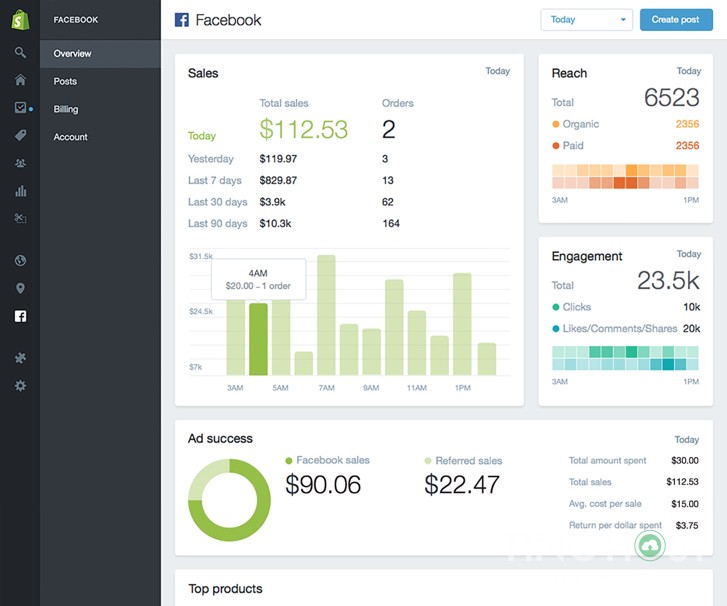
Shopify dashboard
Shopify must instantly pop up in your mind when thinking of eCommerce platforms. Established in 2004, Shopify has powered over a million merchants globally and contributed $319 billion to the worldwide economy. You can establish an online shopping website integrated with social networking, shopping cards, various payment options, product blogs and much more. The price of official and popular Shopify plans are from $29 to $299 a month, and if you integrate another payment method rather than Shopify Payment, it will charge you a certain amount according to sale.
Advantages:
- No programming skills required: since Shopify is hosted platform, you don’t need any website or
- Clean and modern website theme: 100 designs and 10 of them are free.
- Shopify store with thousands of apps to promote and optimize your store functionalities.
- Diversity of payment gateways: Visa, MasterCard.
- Automatic email system.
Minus point:
- Additional cost: Shopify does not support domestic payment, you can pay internationally via Visa or MasterCard and pay additionally 2% or 3%.
- URL structure: you must maintain your existing URL structure..
Magento
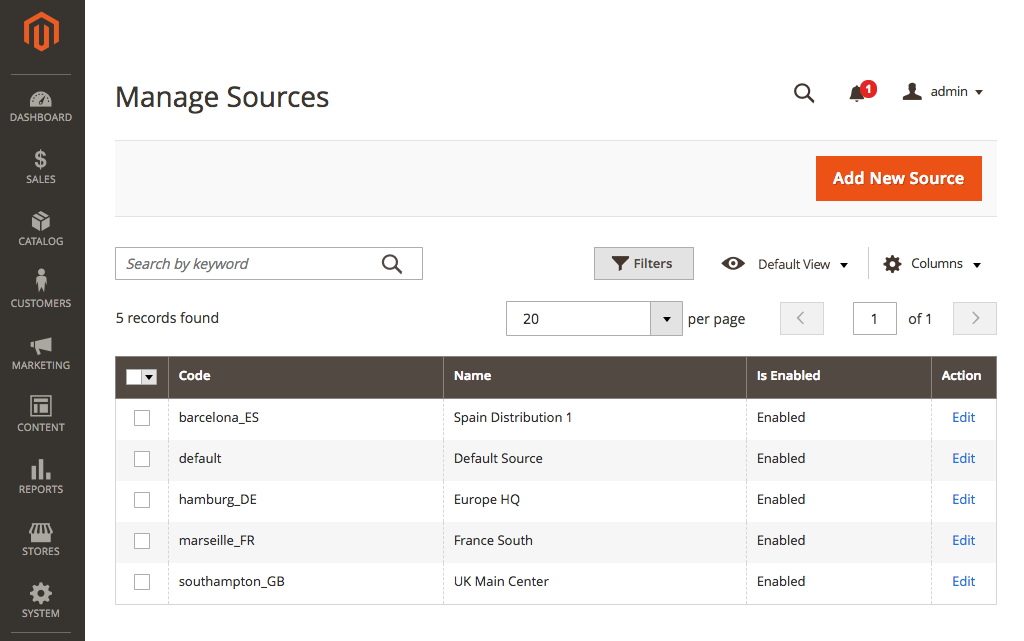
Magento Admin view
Magento is one of the world’s leading platforms that you must not ignore when doing eCommerce research. Magento can support e-commerce stores of all sizes, from small to wholesalers. However, they would require you a slight programming knowledge so it is not truly friendly to beginners.
Advantages:
- Support a variety of currencies and tax calculators.
- Integration with merchant’s payment gateway.
- Security optimization.
- No limitation of business expansion.
Minus points:
- Technical understanding is required.
- Host website in hosting.
- Expensive plans: compared to Shopify, the cost of Magento is significantly higher, the starter plan is about $2,000 and the Pro one costs $3,417 monthly.
WooCommerce
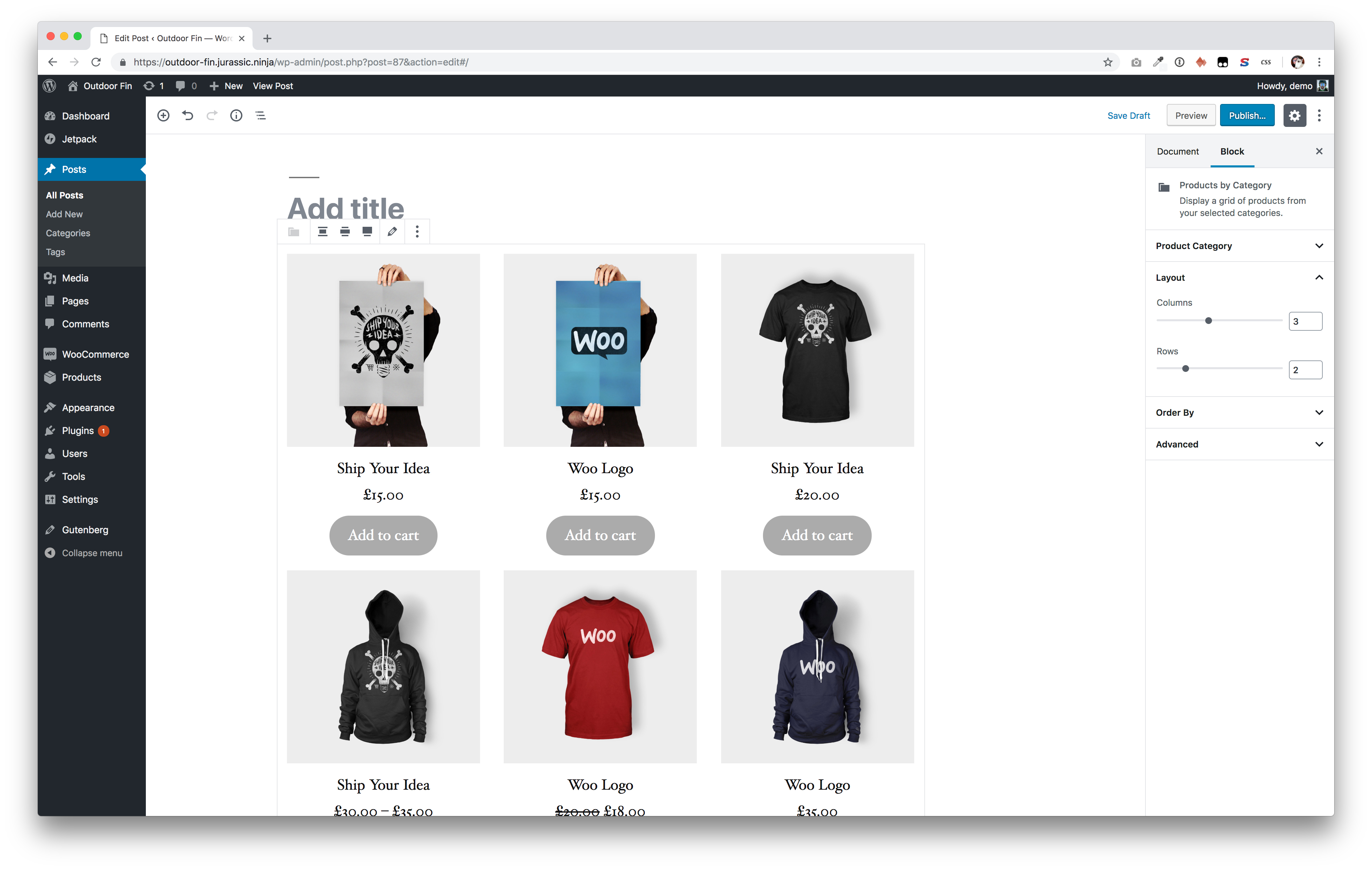
Demo of WooCommerce
Different from the two above platforms, WooCommerce is plugins on WordPress so it is the most friendly tool for both beginners and professionals to upgrade eCommerce functionality for WordPress. The platform is not only free but also open. While the Shopify or Magento basic plans require cost to run, WooCommerce is completely free. Furthermore, designers and programmers can adjust and alter the code.
Advantages:
- Completely free, flexible and extensible.
- Plenty of themes and plugins (many of them are free of charge).
- Absolute control over store and website content.
Minus point:
- Awareness of WordPress and WooCommerce to control effectively.
- Advance features need a paid extension.
BigCommerce
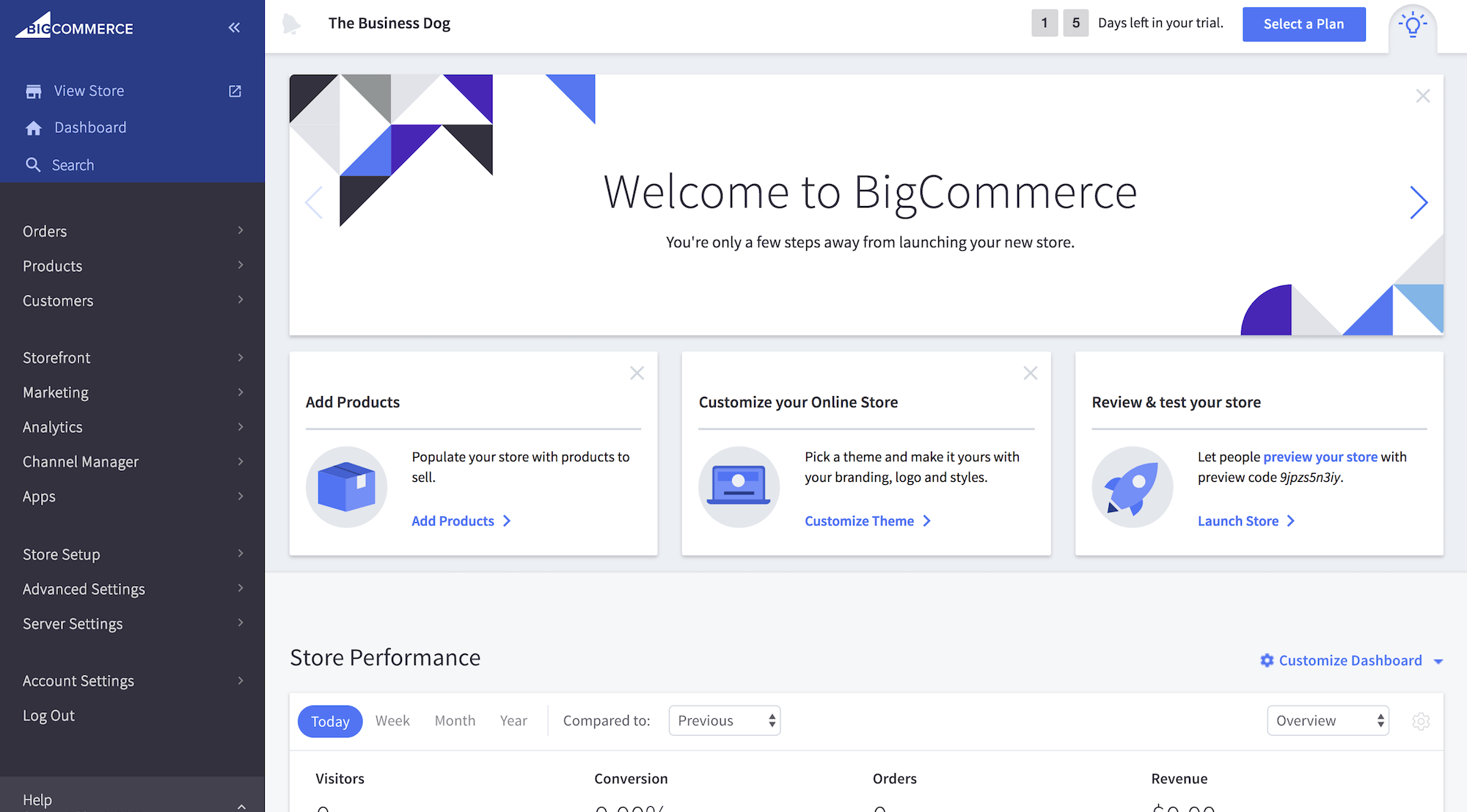
BigCommerce dashboard
BigCommerce is a SaaS eCommerce platform that enables you to launch your store and sell products without any web hosting or software. The price ranges from $29.95 to $299.95 monthly for Standard, Plus and Pro plans and Enterprise plans are customized according to your business. BigCommerce also offers 12 free elegant templates with drag-and-drop page builder, SEO features and CMS function in order that you can optimize the site performance.
Advantages:
- Integration with payment gateways like Apple Pay, PayPal, Stripe, etc.
- Connection with multiple platforms and email providers.
- Great customer support.
Minus point:
- High maintenance cost for individuals.
- Limited choices for dropshipping apps.
- Difficult in design adjustment.
OpenCart
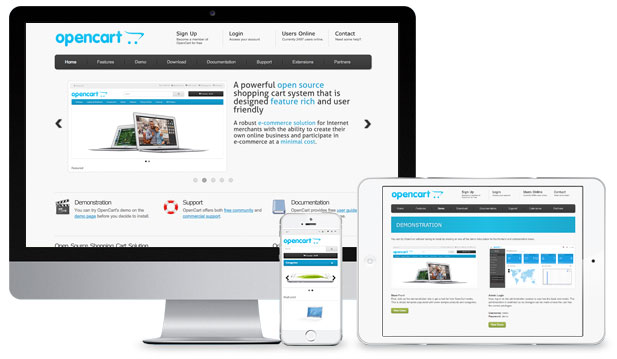
OpenCart
Similar to Magento, OpenCart is a free, powerful and more IT-based-required platform. You need at least basic code knowledge to start a website by OpenCart, that sounds pretty hard for beginners! However, you can build your store with full functionalities such as an infinite number of products, various payment gateways, multi-currency compatibility, backup and restore tools, etc.
Advantages:
- Less complicated than Magento.
- SEO feature integration.
- Full set of reports and metrics.
- Free add-ons
Minus points:
- Difficult to control inventory lists without extension.
- Slow checkout.
Above are the top five leading e-commerce platforms, hope that after this article, you can have accurate evaluation and selection among the huge variety of platforms.




